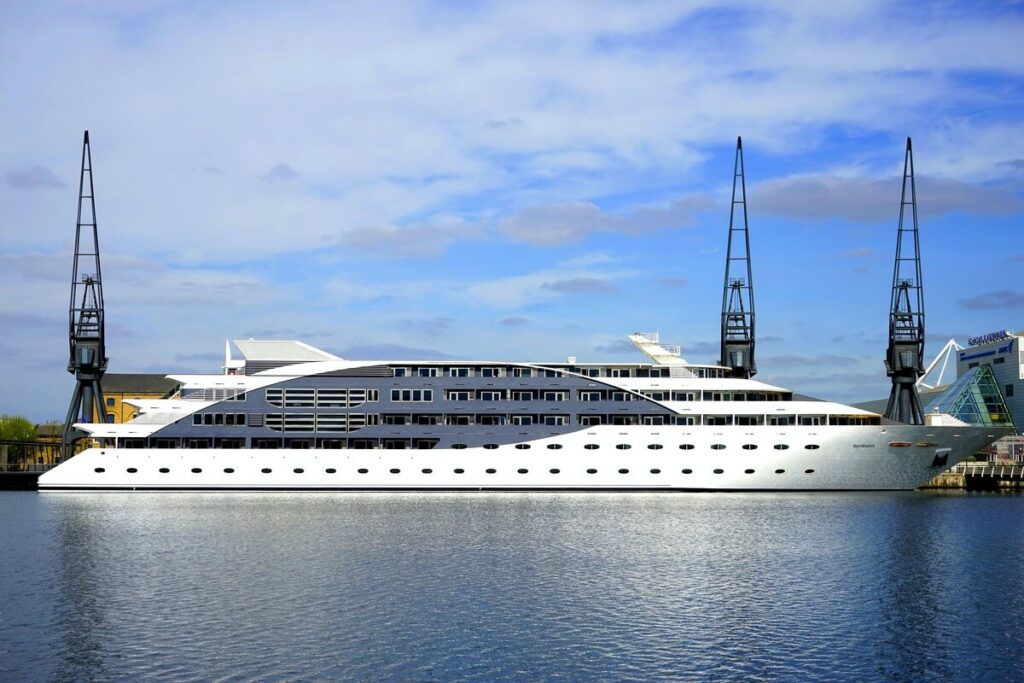
Port Canaveral is one of the world’s busiest cruise ports. Thousands of crew members work diligently to ensure passengers have an unforgettable experience aboard.
However, while these vessels promise leisure and fun to passengers, the environment for crew members is filled with potential hazards. From maintaining massive engines to managing onboard services, crew members are at constant risk of injuries.
Accidents can occur in the blink of an eye—a wet deck, malfunctioning equipment, or even a lack of proper training can result in serious injuries. If you sustained injuries while working on a cruise ship, speak with the Port Canaveral injury lawyers at Johns Law Group.
While cruise line operators are expected to adhere to stringent safety protocols, oversights and negligence can and do occur.
Crew members deserve rightful representation and compensation for their injuries when they do. At Johns Law Group, we’re dedicated to championing the rights of these hardworking individuals.
What Common Injuries Are Crew Members at Risk for?
Cruise ship crew members work in a unique and sometimes challenging environment. Due to the nature of their duties and the conditions aboard, they are susceptible to various injuries. Slip and fall accidents often result from wet surfaces, irregular flooring, or cluttered workspaces.
Due to the machinery and equipment used on ships, crew members also face the risk of injuries from equipment malfunctions or mishandling, such as burns or crush injuries.
Overexertion is another common issue, especially for those involved in lifting heavy items or performing repetitive tasks. Exposure to harmful chemicals or hazardous materials might lead to burns or respiratory problems.
Lastly, crew members may experience musculoskeletal injuries or strains due to the ship’s constant motion, especially if proper safety protocols aren’t followed. All these risks underline the importance of strict safety measures and training for all crew members on board.
Jones Act and Cruise Ship Workers
The Jones Act, or the Merchant Marine Act of 1920, is a federal statute specifically tailored to protect American maritime workers. It allows crew members, including those working on cruise ships, who suffer injuries or illnesses due to negligence or an unseaworthy vessel to seek compensation.
This law differs from workers’ compensation laws that cater to land-based employment. The Jones Act offers maritime workers the unique right to sue their employers for damages directly.
It is important to note that this act is limited in scope to U.S.-owned ships. Vessels registered under foreign flags, which don’t operate under U.S. laws, are not covered by the Jones Act.
Another significant aspect of the Jones Act is its liability requirement. While traditional workers’ compensation claims are based on a no-fault system, those under the Jones Act require the claimant to establish proof. For a successful claim, the maritime worker must demonstrate the cruise line had a duty to provide a safe working environment, and the company breached it.
Compensation under the Jones Act can cover medical bills, lost earnings, and pain and suffering. However, there are time restrictions. Typically, a worker must file a claim three years from the accident date. Specific cases, like occupational illnesses, may have different deadlines.
Maintenance and Cure for Cruise Ship Workers
Maintenance and cure are fundamental rights for maritime workers, including those on cruise ships, who sustain injuries or become ill while on duty.
Under “maintenance,” crew members receive a daily stipend to cover living expenses while undergoing medical care and cannot work. This allowance ensures the injured worker’s essential needs, like housing and food, are met during recovery.
“Cure” pertains to the medical treatments the injured crew member requires, including rehabilitation. The cruise line must cover these medical expenses until the worker achieves “maximum medical cure.”
Unlike many standard workers’ compensation systems, maritime workers can select their preferred doctor. Covered expenses under the “cure” provision include medical devices, prescribed medications, and essential diagnostic procedures.
How Can a Port Canaveral Attorney Help?
Navigating the legal complexities following a cruise ship injury can be daunting, particularly when dealing with specialized maritime laws. A Port Canaveral attorney at Johns Law Group brings knowledge and skill in these areas. We ensure that injured crew members have the best chance of receiving the compensation they deserve.
First and foremost, an experienced attorney can help determine the validity of a claim. We understand the nuances of maritime law and the specifics of the Jones Act, maintenance and cure provisions, and other relevant regulations.
Additionally, we’ll handle the extensive paperwork, negotiations, and, if necessary, the litigation process. We will work diligently to meet all legal deadlines and gather all relevant evidence that supports your claim, including medical records, witness statements, and other necessary documentation that supports your claim.
We also know cruise lines and their insurance companies’ tactics to minimize injury claims. Our lawyers will counter these underhanded strategies, advocating fiercely on behalf of injured crew members.
Contact Our Port Canaveral Injury Lawyers
If you’re searching for Port Canaveral injury attorneys, please contact our legal team at Johns Law Group.
Attorney Jeremiah Johns has years of experience handling cruise ship crew accident claims. He knows what it takes to build a solid claim for damages and how the nuances of maritime accidents work.
Whether it’s negotiating a settlement under the Jones Act or taking a claim to trial, a Port Canaveral attorney is an invaluable ally in the quest for justice and compensation. Contact Johns Law Group today to learn more about how we can help.